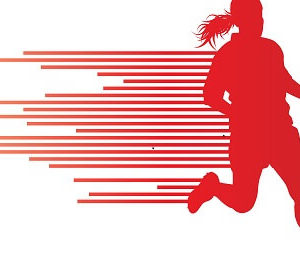Breathing for Sports Performance
Proper Breathing Can Improve Sports Performance
Did you know proper breathing can improve your sports performance by 15%? Research led by Dr. Mitch Lomax and her team at the Department of Sport and Exercise Science at the University of Portsmouth have determined that training of your inspiratory muscles, the muscles responsible for breathing in, can lead to significant improvements in athletic sports performance.
Before The Sporting Event For Best Results
To do this study, the team used an inspiratory muscle training device which works in a similar way to other resistance training devices that are designed to build muscle strength. A training athlete would use such a device to do 1 set of 30 breaths twice a day. For inspiratory muscle warm-up, because the power-boosting effect of warm-up exercises typically dissipates within 30 minutes, an athlete would use the device to do two sets of 30 breaths immediately before the sporting event for best results.
Dr Lomax claims, “The body is designed so the muscles responsible for breathing and the heart will take priority for oxygenated blood over limb muscles, meaning the rest of the body, legs and arms will be the first to ‘go’ causing premature fatigue.”
Efforts Improved By 15%
The researchers tested 12 runners over 6 weeks and found that those who did inspiratory muscle warm-ups improved their times by 5-7%; those who did inspiratory muscle training improved their times by 12%; and those who combined efforts improved by 15%. Dr Lomax said those were very conservative figures and did not rule out athletes making even greater gains. A sample size of 12 is a typical sample in sport and exercise physiological studies.
Pulmonary Limitations to Exercise and The Impact of Respiratory Muscle Training on Sports Performance
Lomax’s research focuses upon the pulmonary limitations to exercise and the impact of respiratory muscle training on sports performance with a particular focus on swimmers and triathletes. He also led the physiology research of the 2008 British tri-services mountaineering expedition to Mount Makalu. Mitch’s current research focuses on the pulmonary limitations and consequences of breathing muscle fatigue in swimmers and inspiratory muscle training in asthmatics. His previous research includes: circulatory and pulmonary interactions during exercise at sea level and in hypoxia and the modulatory impact of inspiratory muscle training; the reliability of inspiratory muscle pressure measurements; inspiratory muscle warm-up and training; and respiratory muscle function and fatigue in running, swimming and triathlon.



